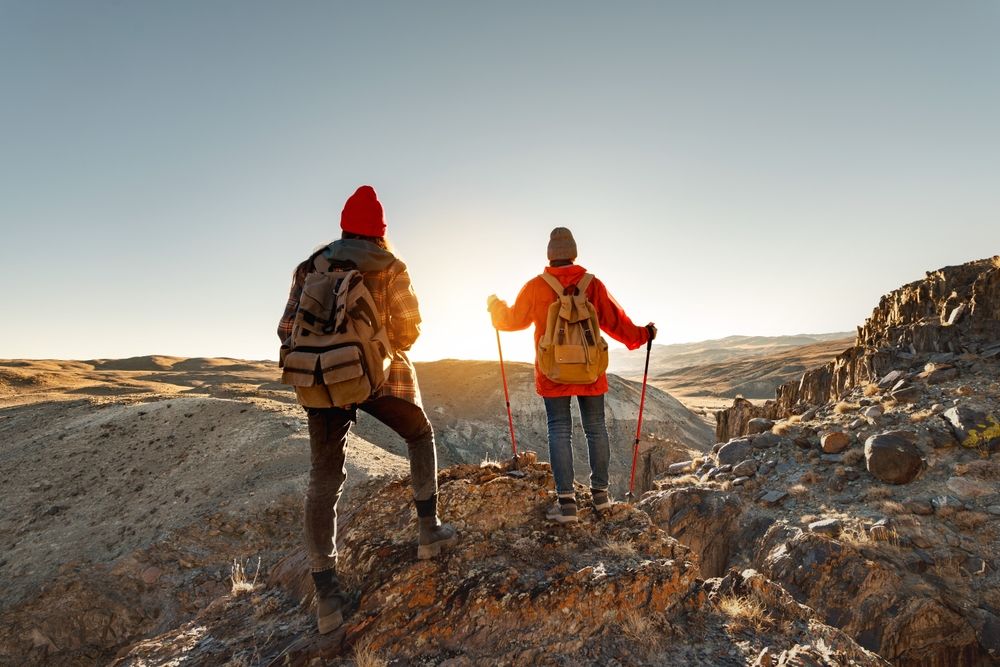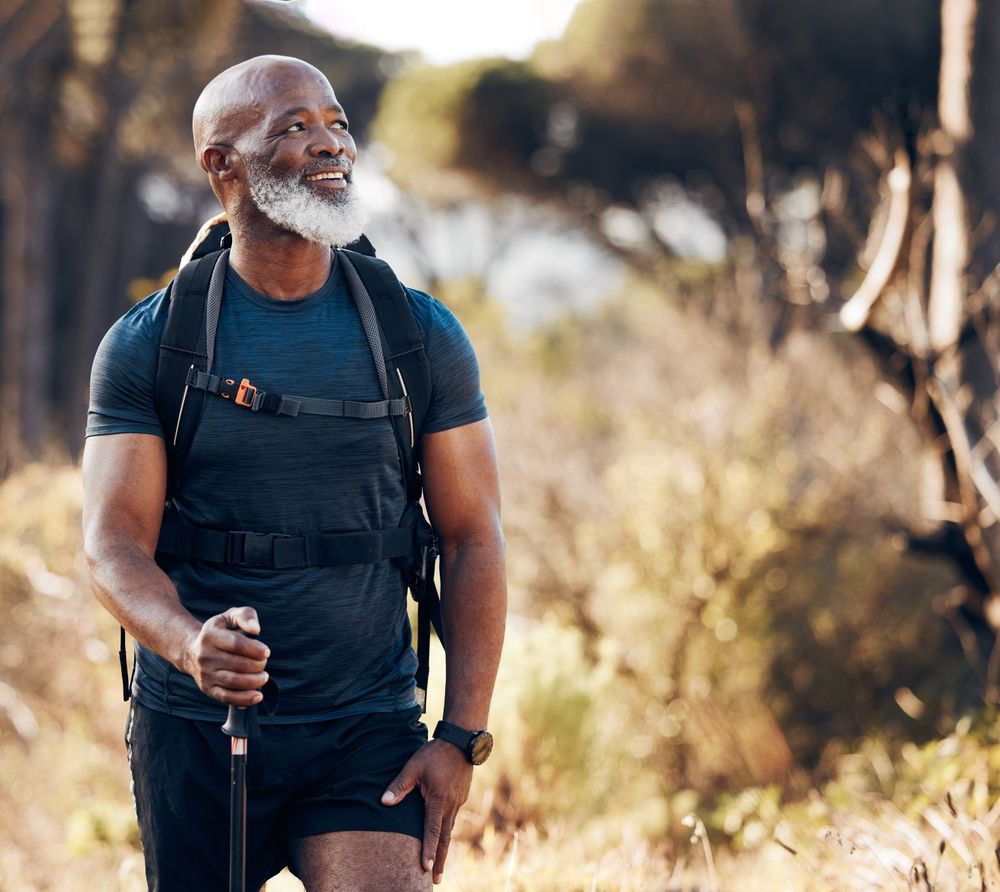
Hiking is a cherished activity that benefits the mind, heart, and body. No matter the season, a picturesque trail can offer an intense cardio workout with diverse terrain or a gentle dose of aerobic exercise. You can tailor the distance and speed to your preference. For those aiming to lose weight, there are several strategies to maximize your hiking workout and increase calorie burn.
Hiking often feels more like an adventure than a workout, making it an enjoyable way to shed excess pounds.
"Hiking is effective for weight loss because it helps you burn more calories, which in turn makes it easier to burn fat," explains Domenic Angelino, CPT and author from the International Personal Trainer Academy (IPTA). "It's also a great social activity. Exercising with friends can make it much more enjoyable, but hiking is equally rewarding when done solo. You can always embark on a mini hiking adventure with a friend or relish the solitude of a solo hike."
So, lace up your hiking boots, and let’s explore how you can optimize your hiking workout for maximum weight loss and achieve the best results possible.
Gradually increase the duration of your hikes.
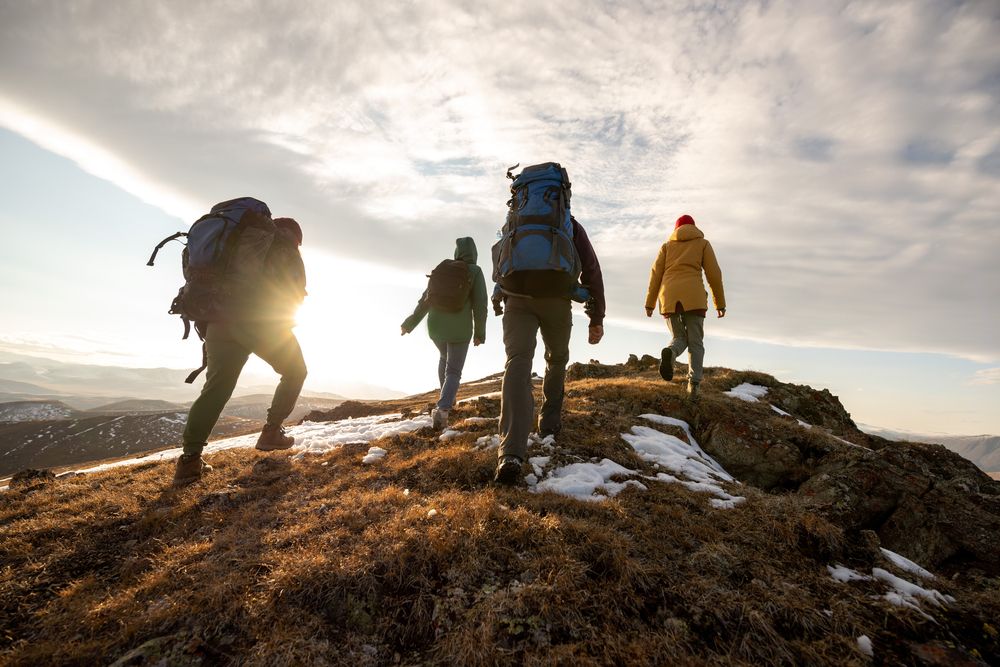
To maximize the benefits of your hiking efforts, plan longer hikes whenever possible. As you progress, improve your fitness, and become more comfortable with hiking, longer treks will become easier. "This will lead to burning more calories and shedding more fat," explains Angelino.
Covering more distance is crucial because to lose weight, you need to burn more calories than you consume each day. "Ideally, aim to burn between 250 and 1000 more calories than you eat daily," Angelino advises. "This approach can result in losing between half a pound to two pounds per week. Keep in mind the calories your body burns just to maintain basic functions, as well as those burned during other non-exercise activities."
Choose a hilly route whenever possible.

The hiking trails you choose can significantly impact your overall results. "Hiking in areas with lots of hills and steep inclines engages your muscles more," explains Angelino. "Your muscles need energy to contract, which means you'll burn more calories to support the extra effort. Burning more calories leads to greater weight loss."
On trails with varied terrain, you can exert more effort on uphill portions after completing downhill stretches, as opposed to a trail with a steady incline. "This mimics interval training, which can lead to increased calorie burn compared to maintaining a steady effort," says Amanda Capritto, a certified personal trainer, sports nutrition coach, and functional training specialist.
Wear a weighted backpack or rucksack.
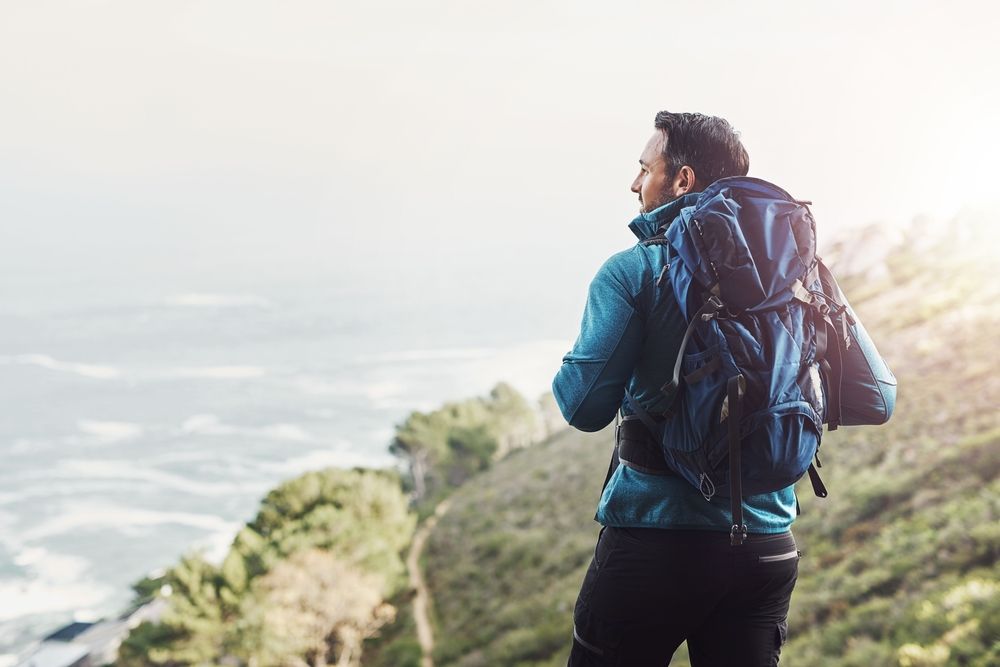
Rucking is currently very popular—and for good reason! To boost calorie burn during your hike, consider wearing a rucksack or weighted backpack. However, ensure it’s not too heavy.
"If your rucksack is too heavy, it can shorten your hike," explains Angelino. "If you need frequent breaks due to the weight, you'll end up burning fewer calories overall. Adding weight can be beneficial, but use only a moderate amount to avoid undermining your efforts."
Try to exceed your previous hike performance.
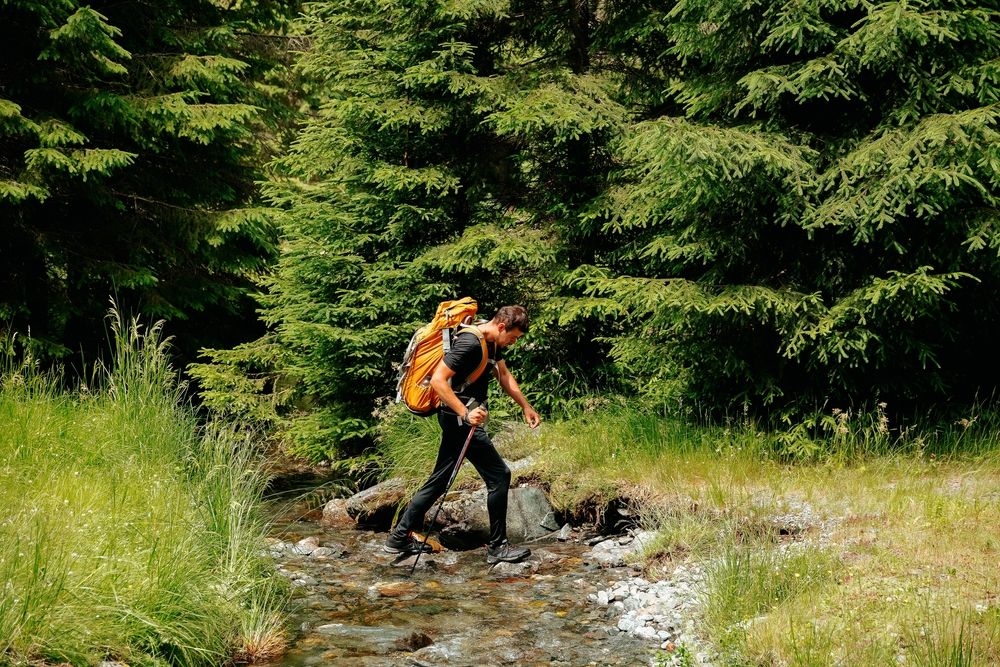
Competition can add excitement and motivate you to improve. For example, the faster you walk during your hike, the more calories you'll burn.
"A fun way to gamify your walking speed is to try to finish your hike faster than the previous time," suggests Angelino. "If you completed your hike in 42 minutes last time, aim for at least 41 minutes and 59 seconds. As you get fitter and more familiar with the route, it will become easier to finish faster."
Hydrate, hydrate, hydrate.

Bring plenty of water on your hike to replenish the fluids lost through sweating.
"Your body's hydration levels can limit how long you can hike," Angelino explains. "If dehydration causes you to stop hiking, you'll burn fewer calories overall. That's why it's crucial to bring enough water with you. Ensure you drink enough to replace the fluids you lose from sweat. Staying hydrated will help you hike longer and maximize your calorie burn."
Pack some healthy snacks.
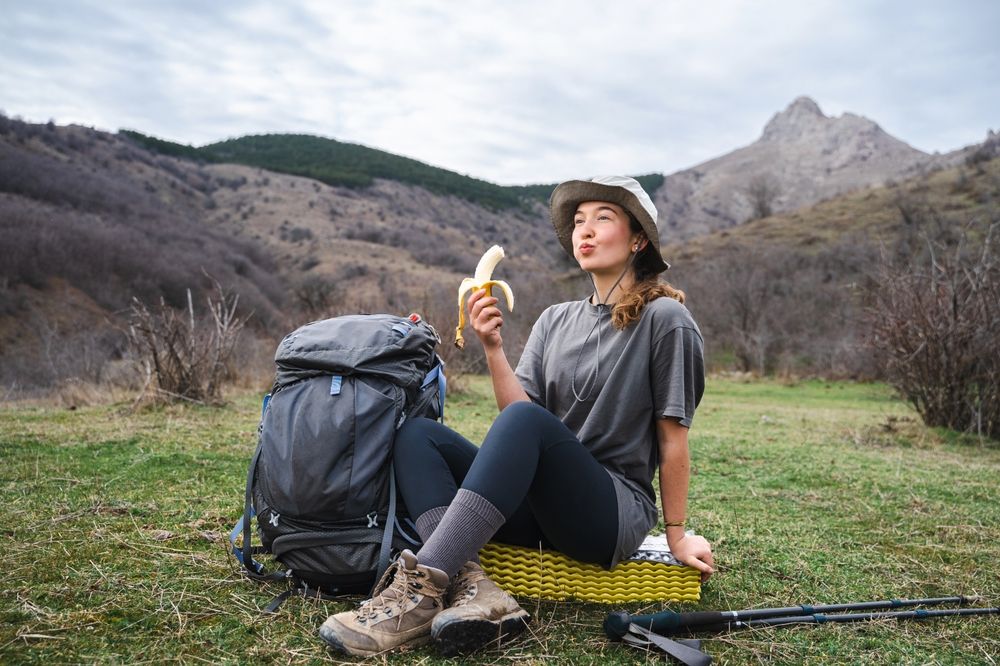
You'll need energy to fuel your body and complete your planned distance.
"When you engage in an activity that burns a lot of energy, you can give yourself a second wind by consuming a moderate amount of carbs through a healthy snack," Angelino advises. "This can extend your hiking workout, leading to more weight loss overall."
However, it's important not to eat more than usual, as that would be counterproductive. Just ensure you have healthy snacks on hand and adjust your diet and calorie intake accordingly.
Capritto recommends packing whole-food carb sources like fruit, along with high-protein snacks such as beef jerky to aid in recovery. Healthy fats, like seeds and nuts, are also good choices, as they provide sustained energy during your hike.
Be sure to wear comfortable, appropriate hiking footwear.
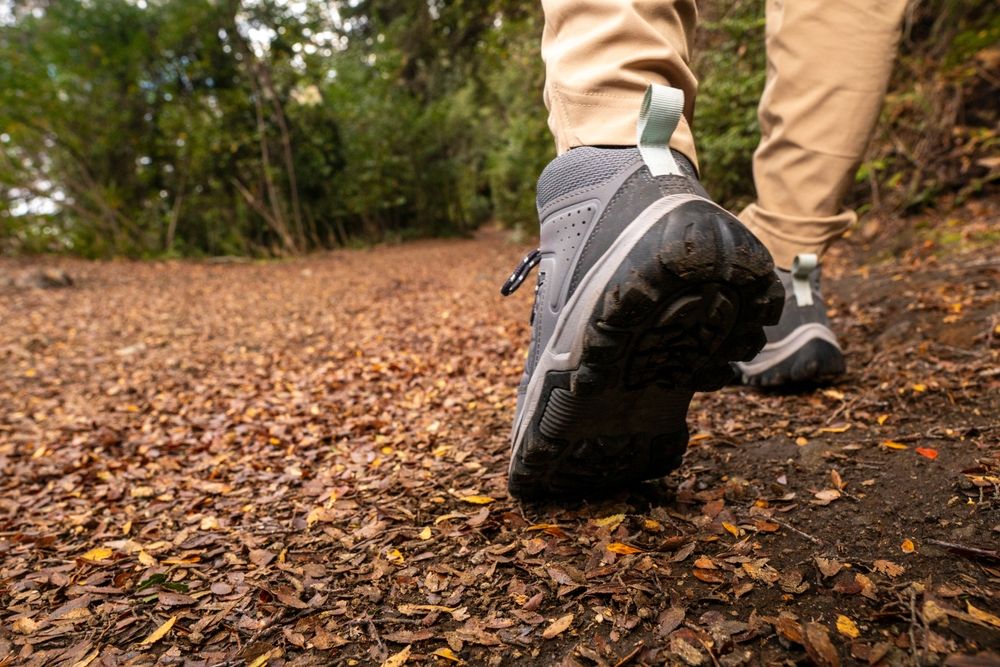
Comfortable and durable shoes are essential for a happy hiking experience.
"Your shoes should be thick enough to prevent discomfort from stepping on sharp rocks," Angelino emphasizes. "They should also provide enough traction to keep your feet from slipping, especially if your hike involves traversing large, smooth rocks."
Dress accordingly for the weather conditions.
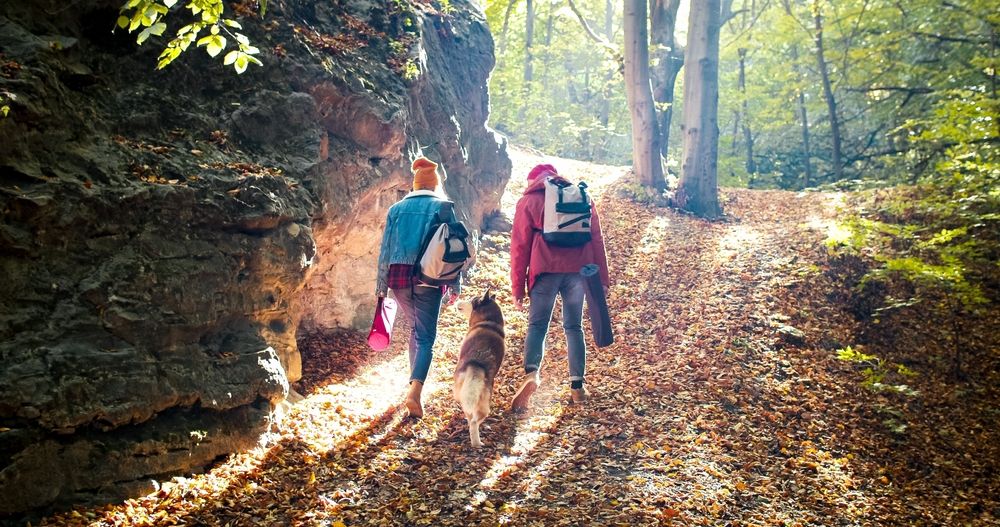
Your clothing choices can significantly affect how long you can comfortably hike outdoors. Whether it's a chilly or sweltering day, dressing appropriately is crucial. Wear cool clothes for hot weather and warm clothes for cold conditions. While this might seem obvious, it's often overlooked.
"Adjust your wardrobe to match the outdoor temperature," advises Angelino. "In the heat, lighter clothing can reduce sweating and fluid loss, making the hike more tolerable. In the cold, warm clothing simply keeps you comfortable and protected."
Add sprints where the terrain permits.
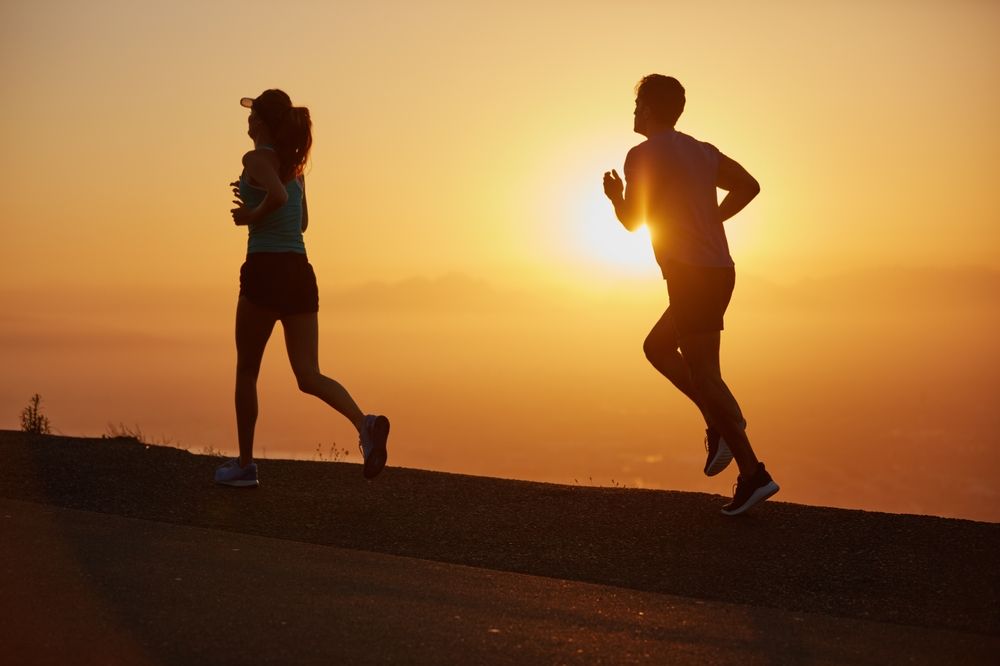
Incorporating sprints into your hike can significantly boost the fat-burning process. There's no rule that says a hike has to be walked! Just ensure the terrain is safe for sprinting and that you have the appropriate footwear.
"If you find a long stretch of stable, high-traction ground with minimal tripping hazards, you can certainly sprint through that portion of your hike," Angelino suggests. "Intermittent sprints on suitable terrain can enhance weight loss and improve your overall cardiovascular health more effectively than regular hiking."
Swap out a workout for a hike to switch things up.
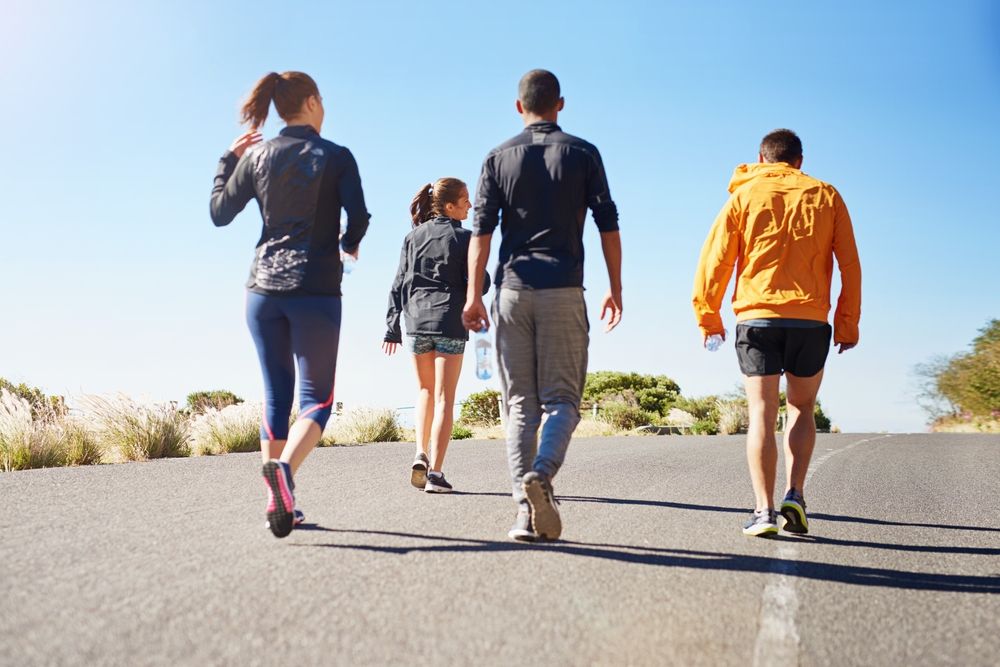
We've all experienced days when we're tired of the gym and don't want to go. If hiking alone or with a friend sounds more appealing, don't feel guilty—just do it!
"Hiking is better than not working out at all and will burn more calories than skipping your workout," says Angelino. "This will help you achieve your fat loss goals even faster."

